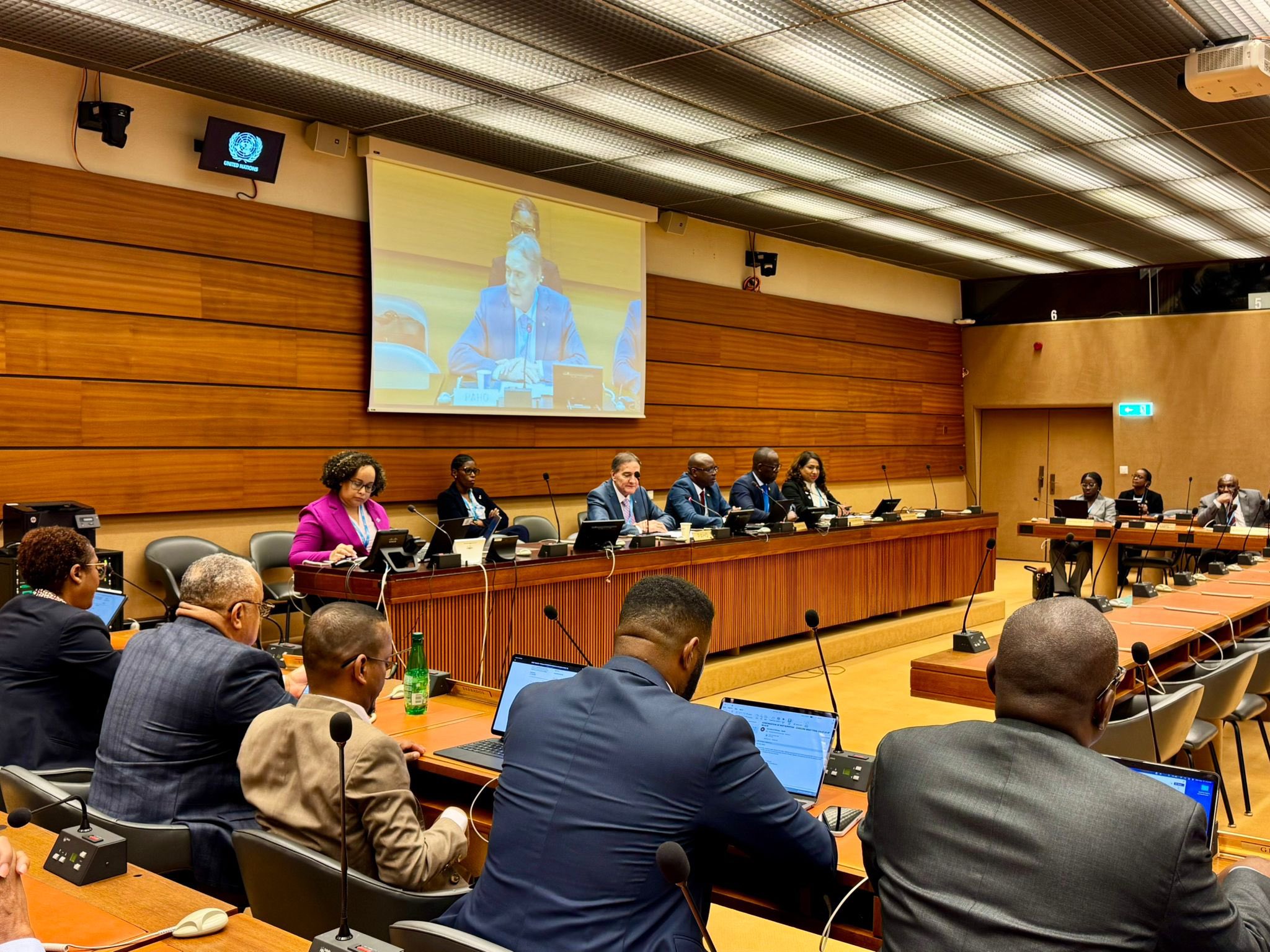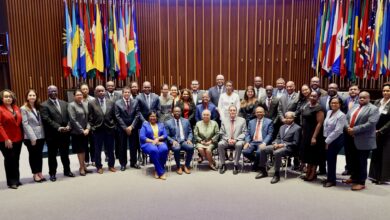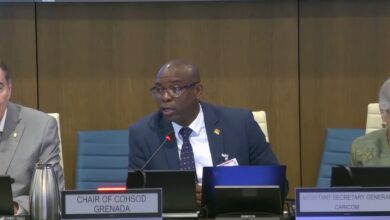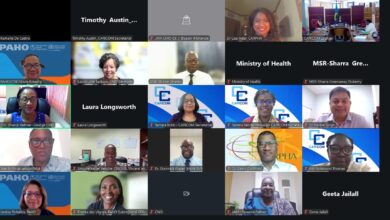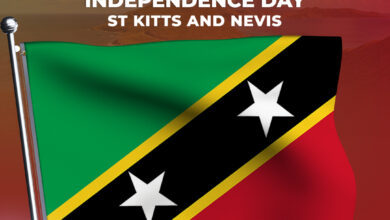Critical takeaways:
- Agreement’s adoption follows three years of intensive negotiation launched due to gaps and inequities identified in national and global COVID-19 response.
- Agreement boosts global collaboration to ensure stronger, more equitable response to future pandemics.
- Next steps include negotiations on Pathogen Access and Benefits Sharing system.
Member States of the World Health Organization (WHO) today formally adopted by consensus the world’s first Pandemic Agreement. The landmark decision by the 78th World Health Assembly culminates more than three years of intensive negotiations launched by governments in response to the devastating impacts of the COVID-19 pandemic, and driven by the goal of making the world safer from – and more equitable in response to – future pandemics.
Prior to the historic announcement, CARICOM Member States issued a statement reaffirming their commitment to strengthening pandemic prevention, preparedness, and response. The statement reads as follows:
The Member States of the Caribbean Community (CARICOM) extend our gratitude to Dr Tedros Ghebreyesus and the Intergovernmental Negotiating Body (INB) and its Bureau for their diligent efforts in negotiating the proposal for the Pandemic Agreement. We commend the WHO Secretariat and express our particular appreciation to the Pan American Health Organisation (PAHO) for their unwavering support provided to our Member States throughout this process.
Our Small Island Developing States (SIDS) were immensely impacted by the COVID-19 pandemic, which severely affected our healthcare systems, supply chains for essential medicines and vaccines, and caused disruptions to vital sectors, including trade and tourism. The repercussions of these challenges continue to affect the Caribbean Community. Therefore, we view the Pandemic Agreement as a significant advancement toward ensuring equity, solidarity, transparency and accountability in the collective global preparedness and response to future pandemics.
We acknowledge the commitments outlined in the provisions on pandemic prevention and surveillance, transfer of technology and know-how, and the sustainable production and distribution of pandemic-related products. However, we welcome the recognition and consideration of the developmental differences in capacities and capabilities of Member States within the proposed agreement, particularly in the current and rapidly evolving geopolitical landscape.
We reaffirm our commitment to strengthening pandemic prevention, preparedness, and response, and ensuring the good health and well-being of the people in our community. We all share a collective responsibility to ensure the attainment of the highest standard of health for all people worldwide, and we believe that more can be achieved through multilateral global cooperation and collaboration.
Therefore, we continue to express our commitment to participating in the negotiation of the PABS Annex to the fullest extent possible, which should be approached with a sense of urgency in the face of the new and re-emerging threats.
Thank you.
CARICOM Member States
Strengthening the global health architecture for pandemic prevention, preparedness and response
“The world is safer today thanks to the leadership, collaboration and commitment of our Member States to adopt the historic WHO Pandemic Agreement,” said Dr Tedros Adhanom Ghebreyesus, WHO Director-General. “The Agreement is a victory for public health, science and multilateral action. It will ensure we, collectively, can better protect the world from future pandemic threats. It is also a recognition by the international community that our citizens, societies and economies must not be left vulnerable to again suffer losses like those endured during COVID-19.”
Governments adopted the WHO Pandemic Agreement today in a plenary session of the World Health Assembly, WHO’s peak decision-making body. The adoption followed yesterday’s approval of the Agreement by vote (124 in favour, 0 objections, 11 abstentions) in Committee by Member State delegations.
“Starting during the height of the COVID-19 pandemic, governments from all corners of the world acted with great purpose, dedication and urgency, and in doing so exercising their national sovereignty, to negotiate the historic WHO Pandemic Agreement that has been adopted today,” said Dr Teodoro Herbosa, Secretary of the Philippines Department of Health, and President of this year’s World Health Assembly, who presided over the Agreement’s adoption. “Now that the Agreement has been brought to life, we must all act with the same urgency to implement its critical elements, including systems to ensure equitable access to life-saving pandemic-related health products. As COVID was a once-in-a-lifetime emergency, the WHO Pandemic Agreement offers a once-in-a-lifetime opportunity to build on lessons learned from that crisis and ensure people worldwide are better protected if a future pandemic emerges.”
The WHO Pandemic Agreement sets out the principles, approaches and tools for better international coordination across a range of areas, in order to strengthen the global health architecture for pandemic prevention, preparedness and response. This includes through the equitable and timely access to vaccines, therapeutics and diagnostics.
Regarding national sovereignty, the Agreement states that: “Nothing in the WHO Pandemic Agreement shall be interpreted as providing the Secretariat of the World Health Organization, including the Director-General of the World Health Organization, any authority to direct, order, alter or otherwise prescribe the national and/or domestic law, as appropriate, or policies of any Party, or to mandate or otherwise impose any requirements that Parties take specific actions, such as ban or accept travellers, impose vaccination mandates or therapeutic or diagnostic measures or implement lockdowns.”
Additional Information
The resolution on the WHO Pandemic Agreement adopted by the World Health Assembly sets out steps to prepare for the accord’s implementation. It includes launching a process to draft and negotiate a Pathogen Access and Benefit Sharing system (PABS) through an Intergovernmental Working Group (IGWG). The result of this process will be considered at next year’s World Health Assembly.
Once the Assembly adopts the PABS annex, the WHO Pandemic Agreement will then be open for signature and consideration of ratification, including by national legislative bodies. After 60 ratifications, the Agreement will enter into force.
In addition, Member States also directed the IGWG to initiate steps to enable setting up of the Coordinating Financial Mechanism for pandemic prevention, preparedness and response, and the Global Supply Chain and Logistics Network (GSCL) to “enhance, facilitate, and work to remove barriers and ensure equitable, timely, rapid, safe, and affordable access to pandemic-related health products for countries in need during public health emergencies of international concern, including pandemic emergencies, and for prevention of such emergencies.”
According to the Agreement, pharmaceutical manufacturers participating in the PABS system will play a key role in equitable and timely access to pandemic-related health products by making available to WHO “rapid access targeting 20% of their real time production of safe, quality and effective vaccines, therapeutics, and diagnostics for the pathogen causing the pandemic emergency.” The distribution of these products to countries will be carried out on the basis of public health risk and need, with particular attention to the needs of developing countries.
The WHO Pandemic Agreement is the second international legal agreement negotiated under Article 19 of the WHO Constitution, the first being the WHO Framework Convention on Tobacco Control, which was adopted in 2003 and entered into force in 2005.
Acknowledgement:
Sections of this news blog contain content provided by the WHO.
Photo: Dr Jarbas Barbosa

